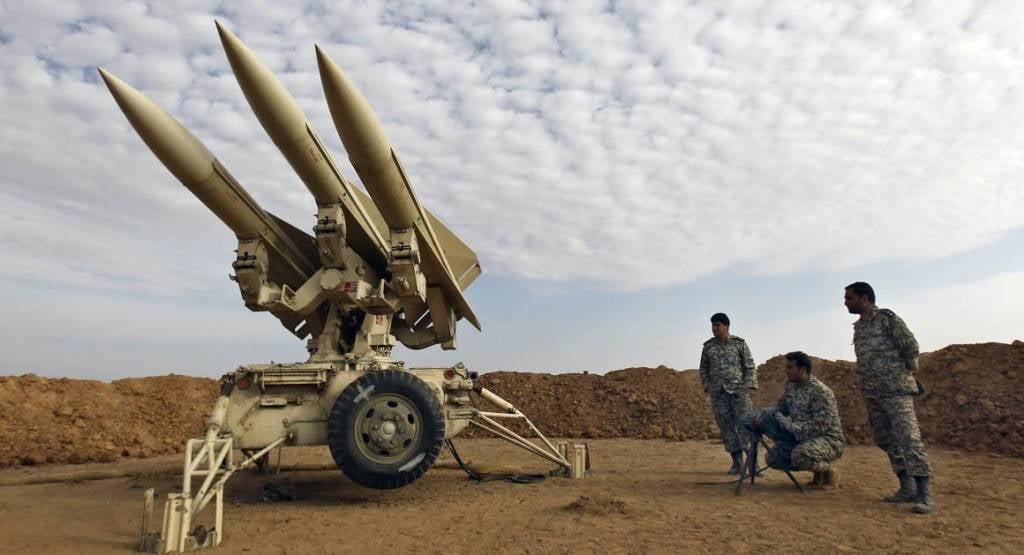On November 4th 1979, nine months after the successful Islamic revolution in Iran. A hostage crisis had ensued, when students had stormed the American Embassy in Iran, in what was to be known as the longest hostage crisis in history.
This was the first act of war by Iran and many more were to follow. Kidnappings were not the only method the Iranians had used, while they unleashed their reign of terror. They also included bombings, guerrilla warfare through their proxies, assassination, and the infamous fatwa issued on Salman Rushdie due to his Novel, the satanic verses, deemed blasphemous in the Islamic world.
But from the Reagan era all the way through to the current administration. The world witnessed the Beirut Barracks bombings that killed 241 US Marines along with 63 French servicemen in 1982. Whichprompted the United States to withdraw its personnel from Lebanon and to pledge full support for Saddam Hussein’s Iraq in the war against Iran. At this point a wave of anti Iranian sentiment rippled across the globe, not limited only to the Arab world, but going as far as the the United States. Despite the terror they had endured. They had fallen short of a direct confrontation with Iran. But if Reagen didn’t have a wet appetite for war, then who would?
Under George W. Bush’s watch, during the Iraq war. The Iranians were training, financing and arming Shia militias that waged war with American soldiers. On the other side of the Iranian border, Afghanistan. The Iranians decided to reach out to an old foe, the Taliban, the same procedure was used in order to wage a proxy war against the United States and their allies. At one point however, there seemed to be a serious escalation between Iran and the United States. After reports of Iranian backed terror attacks on Coalition forces in Iraq, the Americans had raided an Iranian consulate in Arbil, detaining five Iranian diplomats in 2007. In an act of reprisal, that same year, the Iranians had strayed into Iraqi waters, and kidnapped of the British Royal Navy Personnel, only to be released by Tehran after just two weeks. Ad-hoc stand off’s had occurred, particularly around the strait of Hormuz, but fell short of a full scale war. The Bush Administration even refused to back an Israeli airstrike on Iran’s Uranium enrichment and water reactor sites, despite ongoing Iranian calls to annihilate the Jewish state.
Now under the Obama era, the Iranians continue to breach international law. From the Kidnappings of three American Jewish hikers in northern Iraq in 2009, to the incursions on the Fakkah oil field in southern Iraq in later that year, which spiked the oil prices. In October 2011, the Iranians went one step further, a bomb plot targeting a restaurant, frequented by the Saudi Ambassador and the Israeli Embassy in Washington D.C. No action was taken by the commander in chief. The closest he came to was in 2014, when Obama ordered the US Navy to the coast of Yemen, as an Iranian Ship carrying weapons and explosives was aimed at arming a Shia rebel group, the Houthis. The result was a retreat back to the shores of Iran. Throughout this current administration, there has been negotiations on a nuclear agreement with Iran. A deadline that was extended from November 2014 to July 2015 on paper, but in practice there is no end in sight.
A pretext would be needed to wage a war with Iran, the only way would be, is for either negotations to fall through, or if the Iranians were plotting another attack on American soil, similar to the Washington D.C bomb plot. Now that thousands of Iranian soldiers and their proxies hezbollah, and other shia militias are bogged down in Iraq and Syria in a war against Islamic State, perhaps, while Saudis covertly courting Israel for a possible strike on Iran, perhaps the US won’t need a direct confrontation. Only time will tell.
